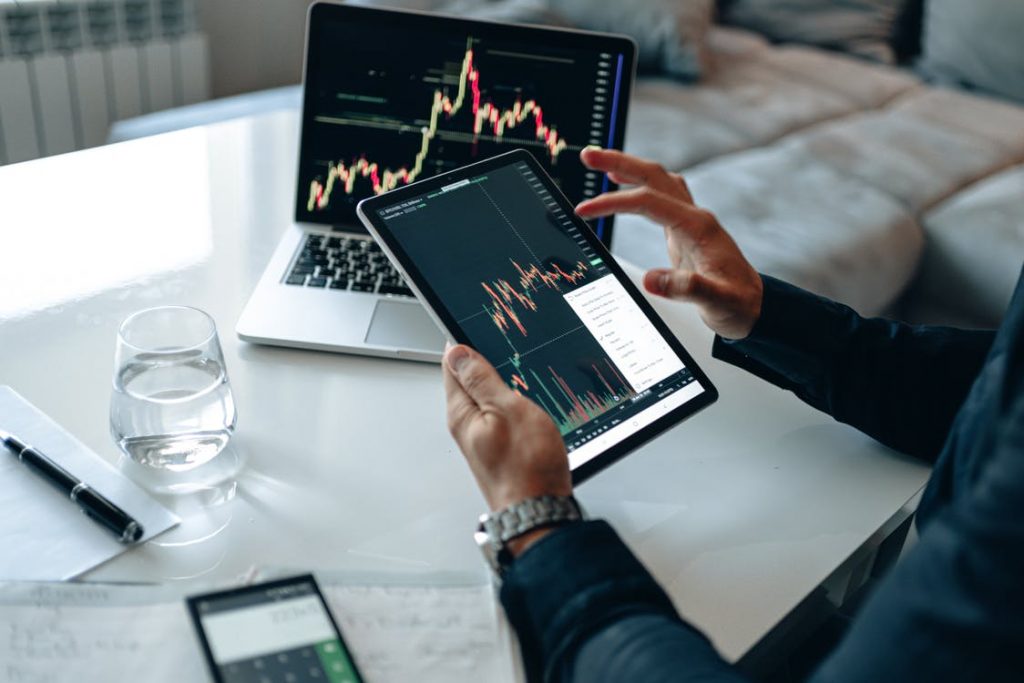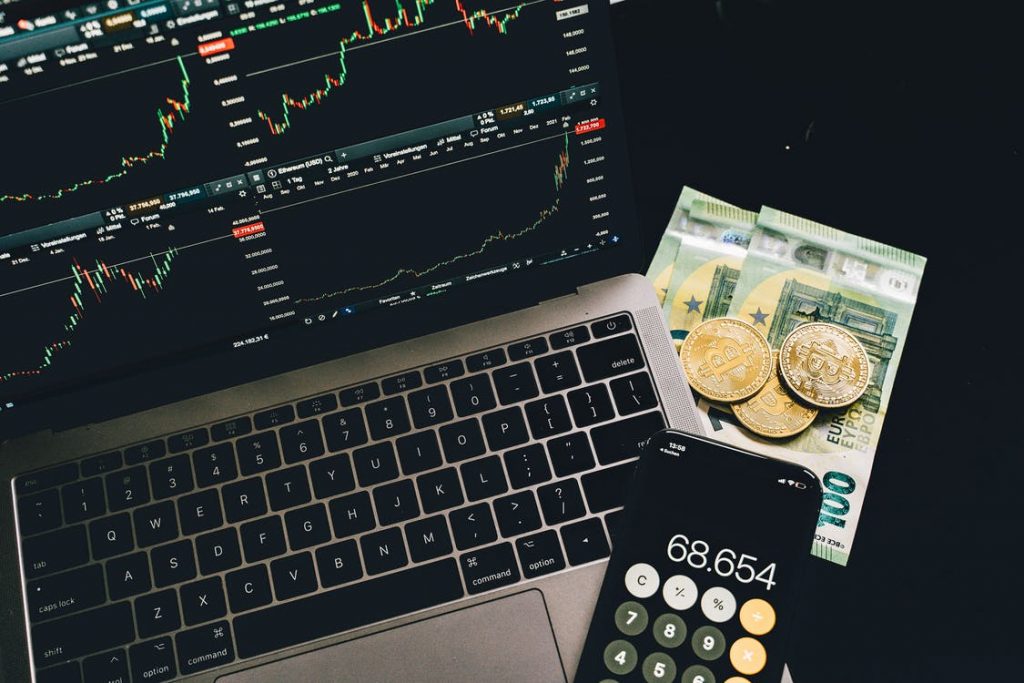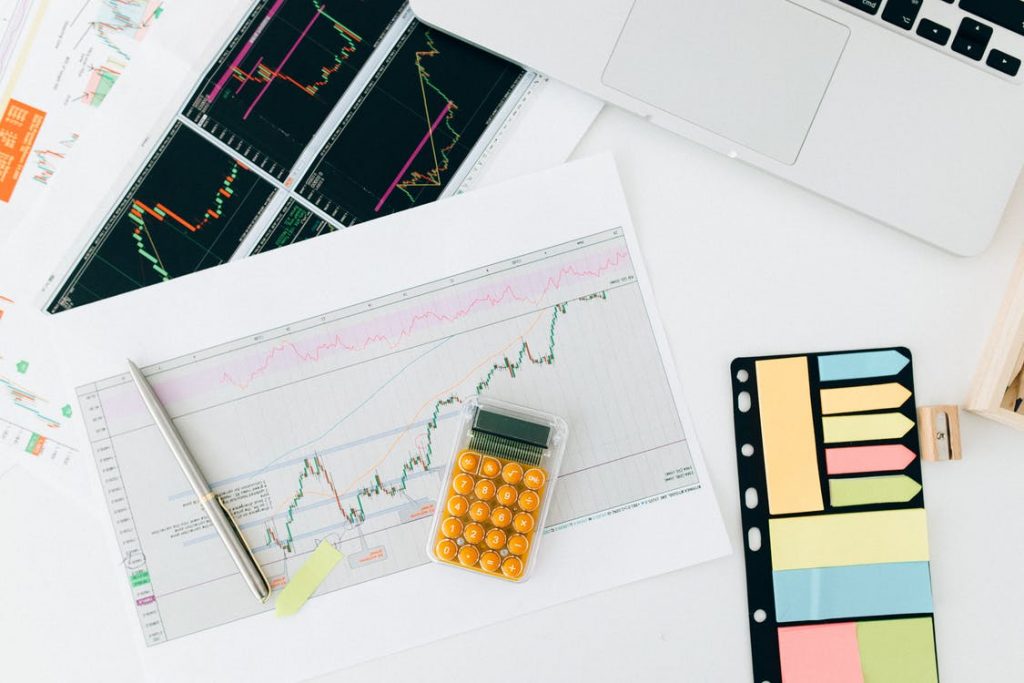Spot trading refers to transactions which are executed and settled instantly. Spot trading strategies can be carried out on a variety of assets including stocks, forex, cryptos, and commodities like gold. FX spot trading is the largest market in the world with a daily trading volume of over $6 trillion.
Beginners can get started with our comprehensive guide to spot trading which includes investing tips and strategy considerations. We also have a list of the best spot trading brokers for 2023.
Spot Trading Explained
A spot trade refers to the purchase or sale of a foreign currency, financial instrument, or commodity for immediate delivery. This means that the exchange of assets happens in the moment unlike non-spot trades where the exchange occurs later at an agreed upon price.
The price at which a financial instrument can be bought or sold immediately is known as the spot price. The spot price is determined by the buyers and sellers on the market through supply and demand. If an asset becomes highly desirable, sellers may ask for more money and buyers may be willing to pay more, causing the spot price to increase.
Forex spot contracts are the most common product and are typically settled within two business days.
Spot trades on cryptocurrencies are settled instantly.

If you are an individual trader, you can profit from by buying assets at a low cost and selling them while they are high. However, it is particularly useful for companies that need the asset they are buying. For example, a plane company might need extra fuel, which they can purchase on the spot market and have delivered within two days. This type of investment is also useful for energy companies, that can sell electricity if they have a surplus and negotiate prices.
How Spot Trading Works
This investing method is intuitive, easy to grasp and lends itself to multiple trading strategies. This also makes it a popular first step for beginners who are new to investing.
To understand more, let’s look at an example:
- Let’s say you want to buy a commodity, such as gold, on the spot market using USD
- Firstly, you need to find a broker and platform that offers the required trading pair – in this case XAU/USD
- In your chosen platform, 1 ounce of gold has a spot price of $1,870, and a futures price deliverable in one month of $1,920. This means you can buy 1 ounce of gold now for $1,870, or you can agree to buy 1 ounce of gold in one month for $1,920. It also means that the price of gold is expected to rise.
- The basis is the difference between the futures and the spot price – in this case, $50.
- You then place a spot buy order at your desired price and quantity.If a seller is happy with your offer, they will accept it, and once the trade is completed the gold will be transferred to your portfolio.The transaction is usually settled in two business days.
- This means you may profit from capital appreciation if the value of gold increases over time.You can trade with this gold at any point.
It is also possible to open a short position on a spot market.However, because spot trading requires immediate delivery and you do not own the asset to sell, you will need to buy the assets back before the end of the trading session.
To short sell, most spot market platforms will check that you have sufficient capital in the desired currency.Some brokers such asKraken,only allow clients to open short positions when using margin.
There are two main types of spot markets:
- Over-the-counter (OTC)–Also referred to as off-exchange trading, OTC assets are not available on a formal exchange, like the New York Stock Exchange (NYSE).Sellers and buyers meet on an open exchange to trade through bilateral agreement without regulation from a third-party supervisor.The selling or buying price does not need to be published, so you can offer different prices to different dealers.Investments that typically trade OTC include derivatives, forex and cryptocurrencies.
- Market exchange–This is a formal, organized marketplace in which sellers and buyers exchange assets.
<Selling or buying prices are public and regularized, meaning they are more transparent but less flexible.
Selling or buying prices are public and regularized, meaning they are more transparent but less flexible.
- The two biggest exchanges by market capitalization are the New York Stock Exchange and Nasdaq.
Spot trading is not the same as instant buy: in spot trading, you use a platform to buy and sell assets from other investors, but instant buy means you buy or sell assets from your broker.
Spot trading is similar to a P2P exchange because you can also buy and sell cryptos from other investors, but in P2P the trading volume is limited and often has higher fees.
Spot Market Vs Future Market
The spot trading market is different from the futures market in that when you purchase a futures contract, you do not own the asset.
Instead, you are buying or selling a contract that represents the value of the asset, for example, Dogecoin.
This contract is an agreement to buy or sell a specific asset at a future date.
You can trade with this contract, but you will only own the asset on the day your contract expires.
Many assets will have a “spot price” (the cost to buy right now) and a “futures price” (the cost of buying at a later date) which accounts for interest rates and other factors and reflects how the market thinks the asset will behave.
As described in the example above, if you buy one ounce of gold on a futures contract, it will be one month until you receive the gold in your holdings, and until you must pay for it.
Futures contracts allow traders to speculate on the future price of an individual asset without owning it.
Therefore, you can take advantage of market volatility: if you are expecting a price to rise, you will buy a futures contract to go long, or if you are expecting a fall, you will sell a futures contract to go short. This is unlike typical spot purchases in which you only make a profit if the price rises. However, future prices are often higher than spot prices, as they account for interest and other factors.
Additionally, futures contracts are often used to hedge against losses. Many traders use them to protect their portfolios against market volatility. Futures exchanges often have extra safeguards and insurance policies because of their complexity.
Spot trading is recommended for beginners as it is a relatively straightforward and a low-risk strategy.
Spot Trading Vs Leveraged Trading
Some exchanges allow investors to carry out spot trades using leverage. This is also known as margin trading. Users essentially borrow capital from a broker to maximize profits. However, this can also increase losses.
For example, let’s say your equity is $1,000. If your broker offers 1:100 leverage, you could take a position of $100,000 ($1,000 x 100). In this scenario, your broker would be effectively lending you $99,000. Any profit or loss on your position would be magnified 100 times.

When using a spot exchange without leverage, you will need sufficient capital in one currency to be able to exchange it for another.
For example, to exchange USD for BTC on a spot exchange, you need to have a USD balance. However, with adequate collateral currencies, as defined by the broker, you can open a margin position even if you don’t hold a balance in the asset you wish to trade.
Most reputable online brokers, including Binance, Coinbase, Gate.io, Bybit, Okex, Kraken, and Kucoin, offer spot and leveraged trading on cryptos. However, the rules for spot trading and margin trading differ between brokers. For instance, leveraged investing is only available on Binance using futures, while on Kraken, opening a short spot position is only possible with leverage. Check out our respective reviews for information on fees, mobile apps, trading history, and more.
Pros Of Spot Trading
Beginners may be drawn to this style of trading because of its ease and simplicity. Other benefits of spot trading include:
- Delivery – Spot trading has a significant advantage over other forms of investing, such as futures, in that the transaction is settled immediately. Settlement for stocks, forex, and other commodities, such as gold and metals, typically takes two business days after the execution day. However, for cryptocurrencies, settlement occurs instantly.
- Risk – Unlike margin trading, where losses can be magnified, the most you can lose in spot trading is your initial investment.
- This makes spot trading an ideal candidate for those new to investing and looking to develop their skills.
- Liquidity – Spot markets are highly liquid. The spot price is the current price for the immediate purchase, payment, and delivery of a certain asset. Prices in derivatives markets such as futures and options will therefore be based on the spot price. A liquid market is considered less risky as there will generally be someone willing to take on the other side of the position.
- Transparency – If you are investing on an exchange, prices are typically public. Moreover, they reflect the current value of the asset, as opposed to the estimated future value. This means you do not need to speculate, making it easier for beginners.
- Flexibility – If you are trading over the counter, you can look for deals from different brokers, choosing the most convenient option for your goals. You can also hold if you are not happy with the current prices. In addition, the spot market offers the possibility to invest smaller amounts, while future contracts often have minimum requirements.
Cons Of Spot Trading
- Immediate delivery – Because the exchange of assets happens immediately, you can only trade with assets you own, as opposed to futures contracts where you can agree to pay a certain amount for an asset even if you do not own it yet. This means that short selling is limited.
- Lack of transparency – If you are trading over the counter, buying or selling prices are not public.
Therefore, you cannot be sure if the deal you are being offered is higher, similar or lower than the rest of the deals happening at the same time.
Volatility – Exchange rates for certain assets, like currencies, are extremely volatile. It is important to study the market carefully to ensure you are opening or closing your position at the right time.
How To Start Spot Trading
- Pick a market – Choose what assets you would like to trade. These could be forex, commodities, cryptocurrencies or an alternative.
- Choose a broker, open an account and log in – You should carefully examine the benefits offered by each broker, and choose one that meets your needs. Check out the next section to learn more on how to choose the best broker for you.
- Find an opportunity – Many online brokers offer technical indicators and signals that you can use to inform decisions. You should also keep an eye on the order book, which shows the price at which other investors are looking to buy or sell. It’s a good idea to define a trading plan before you begin.
- Decide if you are going long or short – Analyze whether your target asset is likely to increase or decrease in value. If it is likely to increase, you can buy (go long). If it is likely to decrease, and you own some of this asset, you can sell (go short). Before you open a position, it’s important to know how much capital you stand to earn or lose.
There are various online profit calculators available that can assist you in determining your profits.
- Implement stop losses and take profit features – Some brokers provide these features, which allow you to manage your risk and increase your profit without continuously monitoring the market.
- Track market trends – Keep an eye on the technical indicators and order book provided by your broker.
- Close your position – If you believe that the market is in a profitable position, close your position, and calculate your profit or loss. Remember to adhere to your trading plan.
Note that any profits earned from spot trading may be subject to capital gains tax in your country of residence. Check with your local government to determine at what point your earnings will become taxable.

What to Consider When Selecting a Spot Trading Broker
- Markets – Ensure that your online broker provides access to the financial market you are interested in, such as forex pairs. Check that the firm also permits citizens from your country to spot trade. If you want to invest in a particular exchange market, such as the New York Stock Exchange, find a broker that facilitates access.
- Execution of spot orders – Choose a broker that offers instant executions as a delay of even a few seconds in processing your order can result in a loss.
- Trading volume – Opt for a platform with a high volume of buyers and sellers to increase liquidity.
- Brokerages with an international presence are more likely to have plenty of customers to sell or buy your assets.
- Market indicators – Market indicators plus signals and alerts will help you make informed decisions. Choose a platform that has market indicators that will support your trading strategy, and if you are a beginner, find a provider that has tutorials and explanations to better understand how these indicators work.
- Fees and charges – Each broker will have a minimum account deposit, minimum trade size, and a spot trading fee. Ensure that your broker has competitive pricing, plus a minimum deposit and volume that matches what you are willing to invest.
- Platforms – Many online brokers offer a variety of platforms including browser-based terminals and mobile apps. To ensure a stress-free trading experience, look out for platforms and apps with user-friendly interfaces, extensive features, and positive online reviews. Many platforms will also offer demo accounts which are a great way to develop your skills and get to grips with a platform before investing real money.
- Customer support – Customer service can be in the form of live chat, email, or telephone. Good customer support means that any problems that you have can be more easily resolved. Reading online reviews is a great way to assess the quality of a broker’s customer support.
- Regulation – A regulated company is more likely to be held accountable for any mistakes and will increase the security of your funds.
- Among the top regulators of day trading brokers are the Cyprus Securities & Exchange Commission (CySEC) and the UK (Financial Conduct Authority).
Final Word On Spot Trading
Whether you’re in Hong Kong, Delhi, India, Romania, Dubai or Abu Dhabi, spot trading is an attractive first step for many investors.In a bull market, it can help generate profits, and its simplicity means that transactions can be carried out quickly and easily.However, spot trading doesn’t necessarily lend itself to sophisticated bot strategies usually associated with futures or options contracts which may be limiting for more experienced investors.
If you want to understand more about spot trading cryptos, companies such as Binance, Coinbase and Kraken offer their own academy, tutorials and telegram channels that describe systems, techniques and patterns for dummies.Alternatively, see our list of the top spot trading brokers to get started.
FAQ
What Is Spot Trading?
Is Spot Trading A Good Idea?
Spot trading is an easy concept to understand, which makes it an ideal starting point for beginners.
New investors can even keep a journal of their positions to avoid liquidation and make it easier for future reference. Furthermore, investing without leverage is arguably less risky as the most you will lose is your initial capital. However, in a bear market it can be hard to make a profit.
Is Spot Trading Halal?
This investment method is considered Halal and not Haram in Islam if the availability of delivery and payment are within the spot period. Consult your local religious leader for advice.
Where Can I Spot Trade Cryptocurrency?
What Is A Spot Trading Fee?
If you are spot energy trading in Dubai via an online broker, then you might need to pay fees and commissions to use their platform and services.
